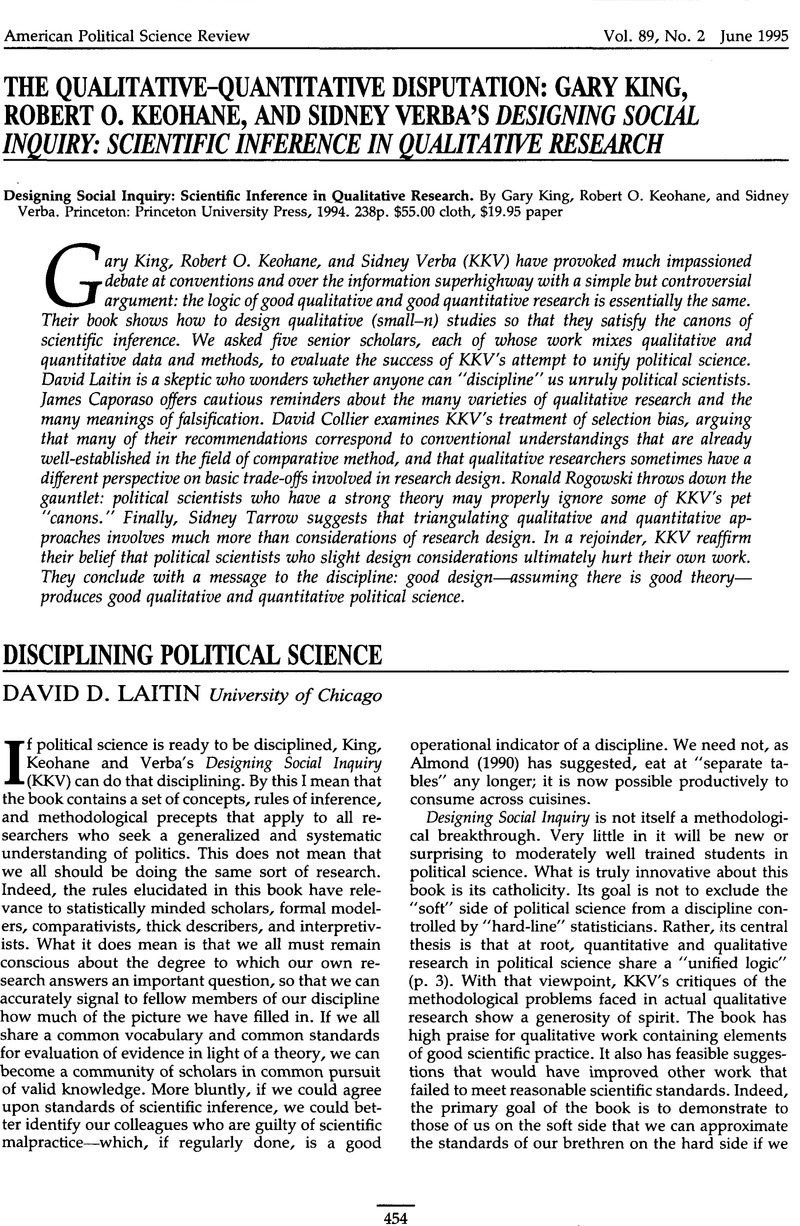Crossref Citations
This article has been cited by the following publications. This list is generated based on data provided by Crossref.
LAITIN, DAVID D.
1998.
Toward a Political Science Discipline.
Comparative Political Studies,
Vol. 31,
Issue. 4,
p.
423.
Muzur, Amy G.
and
Parry, Janine
1998.
Choosing Not to Choose in Comparative Policy Research Design: The Case of the Research Network on Gender, Politics, and the State.
Policy Studies Journal,
Vol. 26,
Issue. 3,
p.
384.
Straussman, Jeffrey D.
2001.
Technical assistance to local governments in Hungary: the limits of best practice.
International Journal of Public Sector Management,
Vol. 14,
Issue. 6,
p.
500.
Johnson, James
2002.
HOWCONCEPTUALPROBLEMSMIGRATE: Rational Choice, Interpretation, and the Hazards of Pluralism.
Annual Review of Political Science,
Vol. 5,
Issue. 1,
p.
223.
Schwartz-Shea, Peregrine
and
Yanow, Dvora
2002.
“Reading” “ Methods” “Texts”: ” How Research Methods Texts Construct Political Science.
Political Research Quarterly,
Vol. 55,
Issue. 2,
p.
457.
Müller, Marion G.
2004.
Politikwissenschaft als Kulturwissenschaft.
p.
335.
Thomas, George
2005.
The Qualitative Foundations of Political Science Methodology.
Perspectives on Politics,
Vol. 3,
Issue. 04,
Denters, Bas
and
Mossberger, Karen
2006.
Building Blocks for a Methodology for Comparative Urban Political Research.
Urban Affairs Review,
Vol. 41,
Issue. 4,
p.
550.
Kurtz, Marcus J.
and
Schrank, Andrew
2007.
Growth and Governance: A Defense.
The Journal of Politics,
Vol. 69,
Issue. 2,
p.
563.
Pickel, Gert
2007.
Schlüsselwerke der Politikwissenschaft.
p.
214.
Quinn, John James
2009.
When You Can't Find the Perfect Match: Using the Accumulated Most Similar Design in Case Studies.
Journal of Political Science Education,
Vol. 5,
Issue. 3,
p.
250.
Hellmann, Gunther
2010.
Handbuch der Internationalen Politik.
p.
148.
Knowlton, Nicholas
2013.
ATale of Two Cultures: Qualitative and Quantitative Research in the Social Sciences. By Gary Goertz and James Mahoney. (Princeton: Princeton University Press, 2012.).
The Journal of Politics,
Vol. 75,
Issue. 4,
p.
E38.
Taylor, Jon R.
2013.
Political Science and Chinese Political Studies.
p.
151.
Hellman, Gunther
2014.
Handbuch Internationale Beziehungen.
p.
1.
Gopinath, Deepak
2015.
Shifting of the ontological-epistemological balance in contemporary research agendas: a critique.
Quality & Quantity,
Vol. 49,
Issue. 5,
p.
1873.
Sohn, Patricia
2023.
The Neo-Positive Value of Symbolic Representations and Ritual Politics: Reconsidering the South Korean Allegory in Popular Film, Asura: The City of Madness.
Religions,
Vol. 14,
Issue. 11,
p.
1362.




Comments
No Comments have been published for this article.